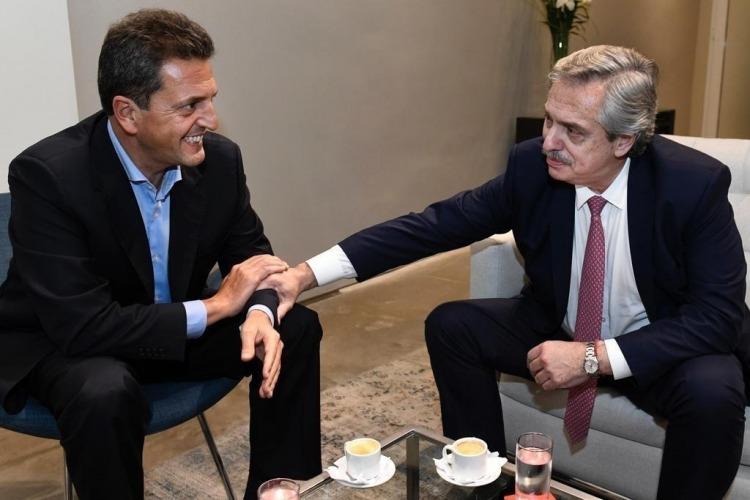Foreign Affairs
Related: About this forumArgentina: Two main opposition leaders agree to electoral alliance
Last edited Wed Jun 12, 2019, 08:00 PM - Edit history (1)
The political landscape ahead of this year's presidential elections in Argentina was rocked today by news that the nation's two top opposition leaders, Alberto Fernández and Sergio Massa, agreed to an electoral alliance.
The alliance, announced as the Front for All, brings together the two main factions in the big-tent Justicialist Party (PJ): the centrist Federal Alternative, led by Massa; and the larger, center-left Citizens' Unity, led by former President Cristina Kirchner (Fernández's running mate this year).
The alliance bolsters the PJ in its bid to defeat right-wing President Mauricio Macri, who's seeking re-election amid approval ratings of 24% and the deepest economic crisis since the country's 2001-02 collapse.
The PJ, founded by the late populist leader Juan Perón (and thus known as Peronists), has been long beset by disunity however, and the prospect of Fernández and Massa running separately represented the best - albeit remote - hope for Macri's "Let's Change" coalition of eking out a victory by default.
Recent polling, however, had Fernández ahead of Macri by 13% even with Massa running separately.
"A large part of our society has long awaited our unity, so we may move forward," Fernández tweeted.
A long way back
The negotiations were reportedly made easier by the fact that Fernández, 60, and Massa, 47, are longtime political allies and personal friends.
Both served as chiefs of staff to former President Cristina Kirchner during her first term (2007-11) - but both entered politics in the 1980s supporting the top neo-liberal figure at the time, the late Álvaro Alsogaray.
Both also broke with Mrs. Kirchner over what they saw as a leftward shift in policy, and Fernández served as Massa's campaign chair during the latter's 2015 campaign, where he placed third.
Massa's decision to abstain from endorsing PJ nominee Daniel Scioli four days before the November 22, 2015, runoff, was decisive in Macri's narrow victory of 2.7% - the closest in Argentine presidential election history.
But Macri's sharp right turn in economic policy - in stark contrast to his centrist campaign rhetoric - and the carry-trade debt bubble collapse that followed by 2018, has helped reunite Peronists.
Massa sought to avoid a similar outcome this year.
"Argentina does not simply need a political front," he said in a June 7 rally. "Our country needs a broad agreement, of all sectors, to get out of Macri's crisis and failure, and to grow for the next 20 years."
At: https://translate.google.com/translate?hl=en&sl=es&tl=en&u=https%3A%2F%2Fwww.eldestapeweb.com%2Fnota%2Felecciones-2019-sergio-massa-y-alberto-fernandez-sellaron-la-unidad-del-peronismo--201961218490
Sergio Massa and Alberto Fernández enjoy a coffee break following today's unity talks in Fernández's Buenos Aires campaign headquarters.
An alliance between Massa's centrist Federal Alternative, and Fernández, the standard bearer for former President Cristina Kirchner's center-left Citizens' Unity, effectively unites Argentina's Peronists - the principal opposition to the neo-con Macri.
